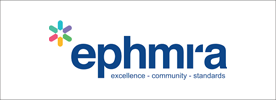
In healthcare market research, data validation is essential for ensuring that insights gathered are accurate, reliable, and actionable. As the industry continues to evolve, the importance of a strong data validation process has become increasingly apparent. With the integration of new technologies and the growing complexity of data sources, researchers face more challenges in maintaining data integrity. Effective data validation not only supports informed decision-making but also helps build trust with stakeholders by providing a solid foundation for analysis and strategic planning.
Importance of Data Validation
In healthcare market research, where decisions can impact patient care, treatment outcomes, and business strategies, the integrity of data cannot be compromised. Accurate data validation helps to:
- Ensure accuracy: Misleading or incorrect data can lead to flawed conclusions. Validation checks help prevent errors and discrepancies in data collection and entry.
- Enhance reliability: Reliable data builds trust with stakeholders, allowing for more confident decision-making based on solid evidence.
- Reduce bias: Proper data validation minimises biases that can skew research results, ensuring a more objective analysis.
- Meet regulatory compliance: In healthcare, adherence to regulatory standards is critical. Data validation ensures compliance with industry regulations, reducing the risk of legal issues.
Emerging Issues in Data Validation
In healthcare market research, data validation is currently being shaped by several key trends. One major focus is data privacy and security, as growing concerns over privacy necessitate that validation processes safeguard patient confidentiality. Researchers are increasingly tasked with ensuring that personal health information is protected throughout the validation process.
Additionally, the validation of patient-generated data is an emerging trend. With the growth of wearable devices and health apps, there is an increasing need to verify the accuracy and reliability of data collected directly from patients.
Data integration is a challenge that continues to gain attention. As data is sourced from a variety of platforms and systems, the ability to accurately combine and analyse this data is extremely important.
Approaches to Data Validation
As a result of the evolving healthcare market, innovative approaches to data validation are being developed to meet the demands of increasingly complex datasets. One interesting development is the use of machine learning algorithms to enhance the validation processes. These algorithms can detect irregularities and patterns that might be missed by traditional methods, enabling researchers to identify potential errors early in the data collection process. Additionally, blockchain technology is being explored as a means of ensuring data integrity. By creating fixed records, blockchain can provide a secure and transparent way to validate data transactions, reducing the risk of inaccuracies.
Conclusion
Data validation is key for ensuring integrity and reliability in healthcare market research. As data sources grow more diverse and complex, a thorough validation process becomes increasingly important. With healthcare organisations relying heavily on data-driven insights to shape patient care and business strategies, maintaining a rigorous approach to data validation is essential. By prioritising data integrity, researchers can build trust with stakeholders and drive meaningful advancements in the healthcare sector.
Are you interested in learning more?





